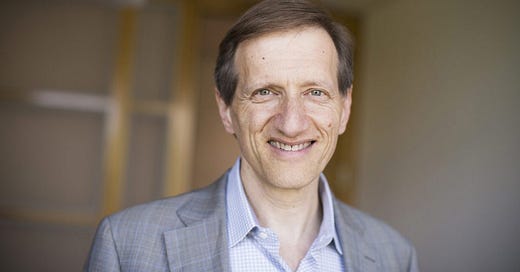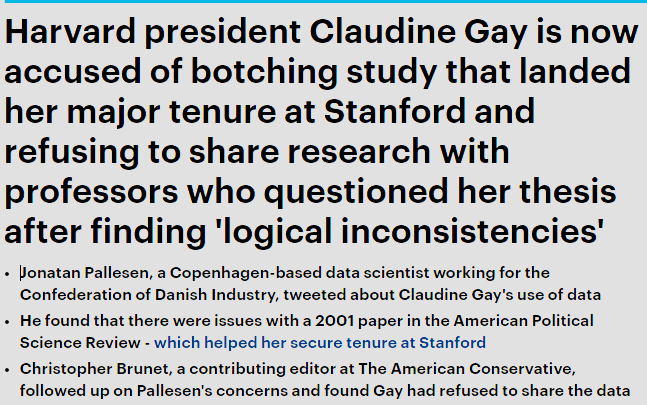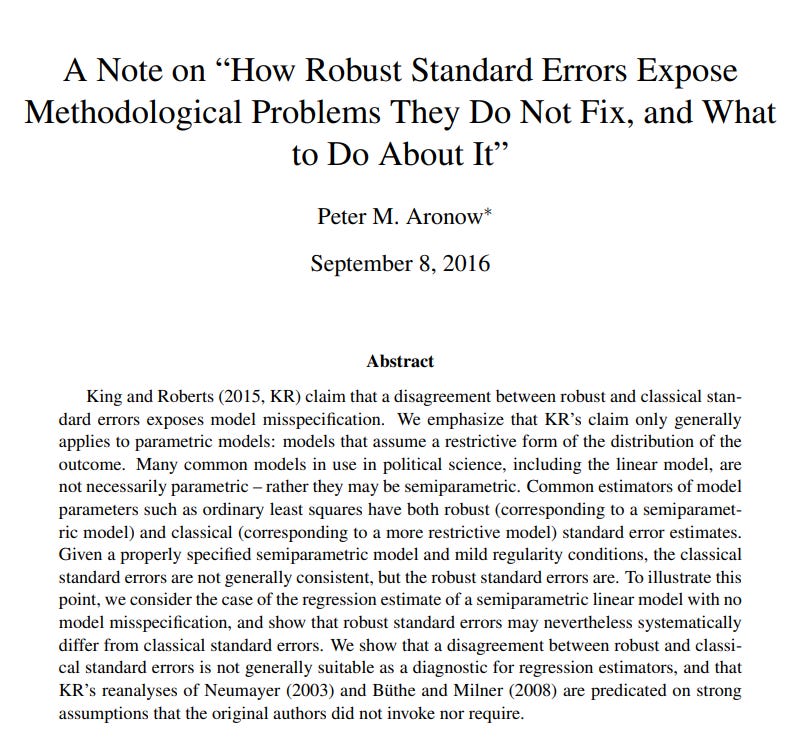The King has no clothes: Claudine Gay's mentor built his fiefdom on bullying, censorship, incompetence and... plagiarism?
It seems the Gay apple does not fall far from the King tree
In late December I published this investigation into Claudine Gay’s refusal to share data for her 1997 thesis:
That story was picked up by a myriad of outlets such as NY Post, Daily Mail, and Townhall:
Gay’s thesis revolved around a quantitative method called ‘‘King-based ecological inference (EI)’’:
The father of EI is Gary King, the Albert J. Weatherhead III University Professor and Director for the Institute for Quantitative Social Science at Harvard University.
He is Claudine Gay’s mentor and thesis advisor, so it would make sense that her work is built on his work.
Ecological inference has been discredited
Even if Claudine Gay’s 1997 weren’t rife with plagiarism, even if she didn’t refuse to share her data, and even if her research design wasn’t fundamentally flawed…
Her thesis would still be worthless.
Because EI is worthless.
That’s why nobody has used this method in 20 years — it’s dead!
Numerous scholars have written scathing takedowns of EI, including Douglas Rivers, a Stanford University Political Science Professor:
EI was further savaged by Herron and Shotts in 2002, authors of the now-infamous footnote (‘‘We were, however, unable to scrutinize Gay’s results because she would not release her dataset to us (personal communication with Claudine Gay, 2002’’):
Notice not only how Claudine Gay’s damning footnote was removed from the final text of the paper, but Gary King’s name was also removed from the title. Instead of ‘‘King-based EI’’ in the title of the working paper, the final title just says ‘‘EI-based second state regressions’’.
EI was further eviscerated by Freedman et. al in 1997, who concluded that ‘‘[The EI] method produces results that are far from the truth’’ and that ‘‘In short, King’s method is not a solution to the ecological inference problem’’:
Gary King’s bullying to suppress criticism
As King’s EI work was getting ripped apart by the profession, one more paper was circulated by Wendy Cho and Brian Gaines, two junior professors at the University of Illinois at Urbana-Champaign. Their paper, ‘‘The Limits of Ecological Inference’’, concluded that: ‘‘We show that the estimation technique [EI] is highly suspect in general and especially unhelpful with their particular data.’’
This paper contains some great nuggets:
‘‘Though King claims that his method is ‘‘robust’’ to violations of the aggregation bias assumption, the evidence strongly suggests otherwise.’’
‘‘King does not rigorously analyze the statistical properties of his estimator’’
‘‘He provides no empirical test for choosing covariates, but only his admonition to exercise one’s belief about what may be true’’
‘‘In short, King has made (and continues to make) many corrections and changes to his software, but it is not clear how those bugs he has fixed by have affected previous results’’
‘‘Moreover, there is an ongoing debate about the reliability of the GAUSS programming language on which King’s program depends.’’
In 2000, their manuscript was accepted for publication in the American Political Science Review (APSR), the top journal in political science. However, in an unprecedented turn of events, after being accepted, the paper's status changed from "forthcoming" to withdrawn:
This reversal was driven by pressure from Gary King. The APSR editor, acting at the behest of King (or so the story goes, confirmed by multiple anonymous sources), attempted to discourage the authors by repeatedly asking for revisions and resubmissions, a tactic that prolonged the review process over 3 (three) years (!!) with the continuous introduction of new reviewers.
After 3 years of unnecessary revisions, the UIUC authors gave up on publishing in the APSR, and instead decided to submit their work to the AJPS, another top journal. There, the manuscript—unchanged from its original form—was swiftly accepted.
It's noteworthy that the published paper in AJPS included a snarky thank-you note to "reviewers 1–10 at the APSR", highlighting the extensive and unusual review journey it underwent.
I would call this 3-year delay an egregious case of professional bullying, as it set back the career of these junior professors significantly for no good reason, purely out of spite and a desire by King to protect his statistically-invalid turf.
Gary King’s botched robust standard errors
So, Gary King’s seminal work on EI is discredited trash.
But what about his other work?
Well, that’s replete with discredited trash too.
A prime example is King’s 2015 article on Robust Standard Errors, which has garnered 407 citations:
This paper was ripped apart the next year, in 2016, by Peter Aronow, a professor at Yale. He concludes that ‘‘[King’s analysis is] predicated on strong assumptions that the original authors did not invoke nor require.’’
Aranow also says that ‘‘On a fundamental level, [King] conflate[s] an unspecified feature of a model with a misspecified feature of a model.’’
And that ‘‘[King’s] recommendations are problematic.’’
The final line in that paper is: ‘‘Thus we would suggest that researchers exercise a great deal of caution in adopting [King’s] recommendations.’’
Another King paper destroyed.
For a comprehensive analysis of this imbroglio, please read A debate about robust standard errors: Perspective from an outsider by Andrew Gelman, a statistician at Columbia.
Gary King steals ‘‘Clarify’’
This paper was published in 1986:
The statistical procedure is described on this slide:
14 years later, Gary King published an extremely similar paper (commonly known in the profession as simply ‘‘CLARIFY’’, after the software developed for it), which glaringly does not cite Robb & Krinsky:
The statistical procedure for this paper is as follows:
Here is how the profession feels about it:
It seems the Gay apple does not fall far from the King tree.





















































































If anything, this is even more damning than the evidence of Gay's plagiarism. Especially in that it seems like it's widely known in the field, and yet King continues to enjoy tenure.
Should I get ahead of the market and patent the phrase "Morons of Harvard?" I really, really, really want that lakeside estate.
And Chris--don't neglect breakfast, lunch and dinner! You're gonna need your strength.